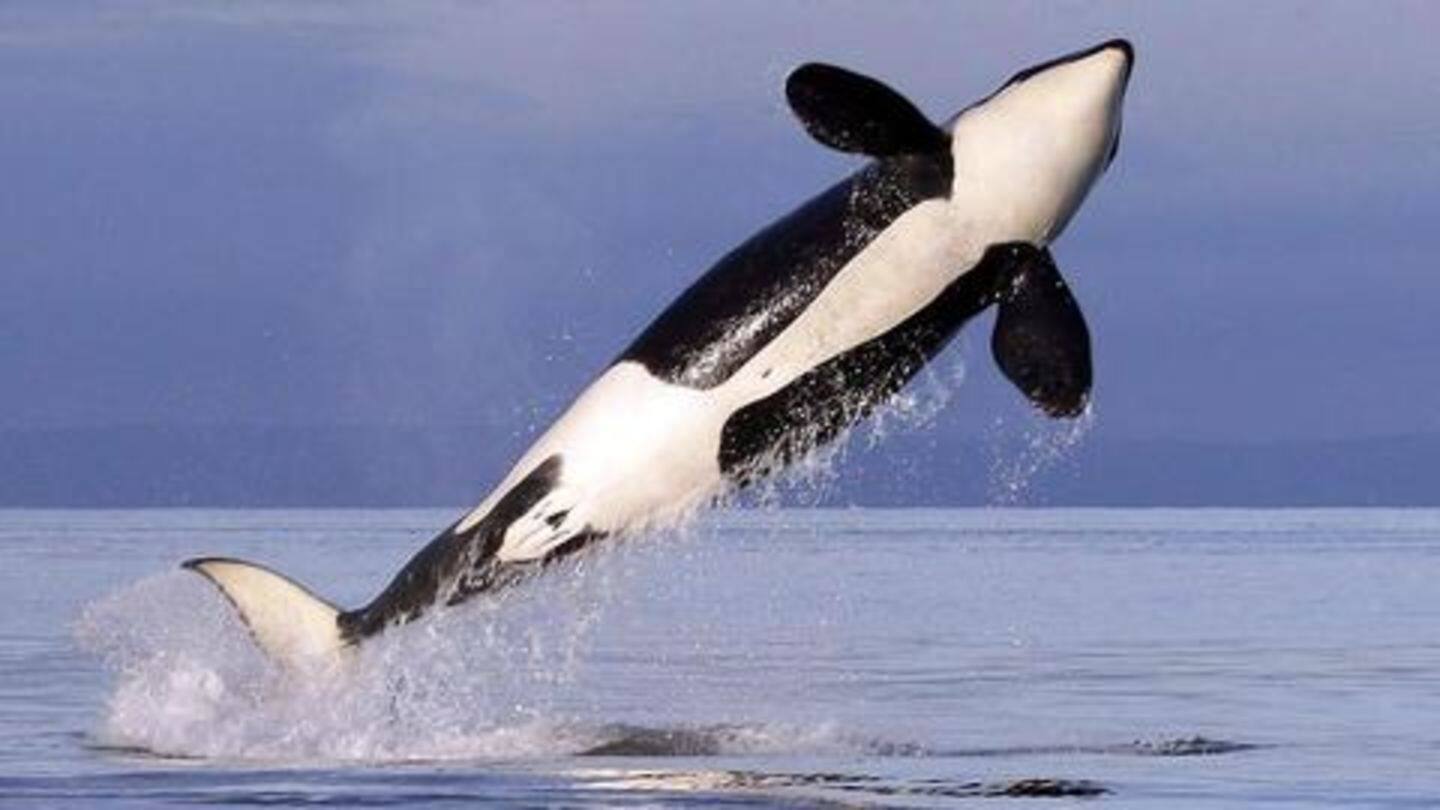
Google is using AI to save killer whales: Here's how
What's the story
Google is using the power of artificial intelligence to save orcas, an endangered species of killer whales, from going extinct.
The company has developed an AI model that tracks the health of the whales and alerts marine life experts as and when they fall sick or are in need of medical attention.
Here's how it works.
Situation
Only 73 Southern Resident orcas left globally
According to the figures from the Center of Whale Research, only 73 Southern Resident orcas, often seen in the protected inshore waters of the Salish Sea, are left all over the world.
The number is fairly low and if nothing is done, it could go further down, wiping the species completely off the face of this Earth.
Solution
Now, Google is using AI to help
To tackle this issue and help orcas grow in number, Google has partnered with the Fisheries and Oceans Canada (DFO) and deployed an AI solution to monitor the health of the whales across 12 locations.
The system works in such a way that if a whale gets sick or meets with an accident, the experts are alerted immediately to provide the necessary care/treatment.
Working
How the system works?
Google says that the system first defines the sickness of a whale by 'listening' to its sound and then displays its location by using the same sound on Rainforest Connection, an acoustic monitoring system for animals.
According to the company, the model has been trained on 1,800 hours' worth of underwater audio and 68,000 labels identifying the origin (cause) of those sounds.
Use
This can come handy to protect the species
The system, Google emphasizes, provides an easy solution to save endangered species like the orcas.
In the event of sickness or an accident of a whale, the tool's tracking capabilities can be used to locate the whale and treat it instantly.
Similarly, easy access to their location could be used to keep them away from high-risk zones, like during an oil spill.